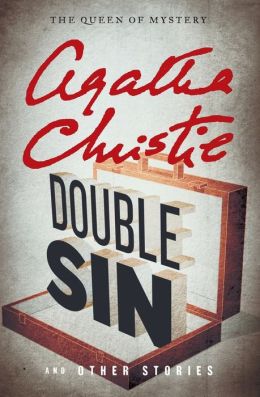| Dame Agatha Christie at her typewriter (15 September 1890 - 12 January 1976) |
This is Dame Agatha Christie's birthday. Today, her cake would have to be large enough to hold 123 candles.
If you are a fan of this mystery writer, as I am, you will never run out of things to read as she penned almost 70 books, over 100 short stories, as well as plays - those with original plots as well as those adapted from her novels.
I saw her play The Mousetrap at St Martin's Theatre in London twice - once in 1982 and again in 2002. I was just as surprised upon the revelation of the murderer the first time as I was twenty years later! It is the longest running play ever. It had its 25,000th performance last November and is still going. I do remember that the audience is asked to keep the ending a secret - my lips are sealed.
There is much to be learned about this beloved author online and I will let you do your own research if you are so inclined. To get you started though, here is a link to a short video about her courtesy of Biography.com.
Agatha Christie, An Autobiography was published in 1977, the year after her death. I have added it to my TBR list even though it is some 600 pages long! I am currently reading her memoir, Come, Tell Me How You Live, which is a very amusing tale of her experiences with her husband, archaeologist Max Mallowan, in the Middle East.
Ms. Christie's former home in Devon is open to the public and contains many of her family pieces. It would be a wonderful place to visit. For a glimpse, here is a link to the National Trust's page featuring Greenway Estate.
For tonight, to celebrate her birthday, I rented the DVD The Murder on the Links with David Suchet as the dapper M. Hercule Poirot (my favorite of her detectives). I recently read the book and wrote about it here. It will be fun to watch the story unfold on screen. As I remember, the plot has many twists and turns. Just what this mystery writer is famous for.
How will you celebrate Dame Agatha Christie's birthday?
